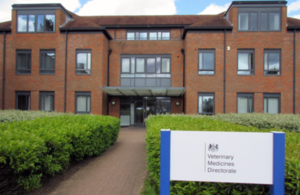Press release: Less than a quarter of charity auditors complied with new reporting rules, according to review
Fewer than one in four auditors alerted the charity regulator to matters of material significance identified in their charity audit reports, according to a new review. The Charity Commission has found that, of the 114 auditors who gave audit opinions containing information they were required to report to the regulator in the six months to October 2017, only 28 contacted the Commission.
The Commission says it is now working with the accountancy profession to raise auditors’ awareness of requirements and address this under-reporting, which it describes as raising a ‘significant concern’ about the adequacy of reporting to the Commission by auditors.
The regulator undertook the review to test compliance with rules that came into force from May 2017, extending the list of reportable matters to include modified audit opinions, such as paragraphs about an emphasis of matter or a material uncertainty regarding going concern – meaning there are doubts as to the charity’s ability to remain solvent.
The new rules are designed to help the regulator intervene in a more timely way, notably where charities face financial difficulty putting their future at risk. They follow the Public Administration and Constitutional Affairs Select Committee’s inquiry into the collapse of Kids Company, which recommended clearer guidance to auditors on the issues regulators expected them to report.
Of the 28 auditors who made a required report to the Commission, only 6 did so promptly, or within one day of signing the audit opinion; 3 waited more than two months to alert the Commission.
Michelle Russell, Director of Investigations and Enforcement at the Charity Commission, says:
Auditors provide vital reassurance that a charity’s accounts are true and fair and by extension in helping ensure charities are transparent and the Commission can regulate effectively. So it is very important that accountancy professionals understand the requirements on them in auditing charities’ accounts.
This review shows that, at this time, too few auditors are complying with their statutory duty to report matters of material significance to us as soon as they identify them. This potentially puts charities at risk. It is important that we identified and responded to this quickly and so we are working with the accountancy profession to help raise awareness of auditors’ reporting requirements and ensure they meet them.
A review published last year analysed the reasons auditors gave modified audit opinions in 2016; these included concerns, on the part of the auditor, that charities did not have sufficient evidence to support their stated income or expenditure.
The Commission has been liaising with both the Institute of Chartered Accountants in England and Wales (ICAEW) and ACCA, the global body for Professional Accountants, about the findings from the report.
ACCA has welcomed the report, saying that “there is a responsibility on the profession to uphold the highest of standards” and that it would work with the regulator to “ensure the value of audit and all reporting for the charity sector remains a top priority”.
Independent examiners were not included in this review, as the revised directions and guidance that referred to their duty to report matters of material significance to the UK regulators, only took effect from 1 December 2017. The regulators published updated guidance for independent examiners in September 2017.

